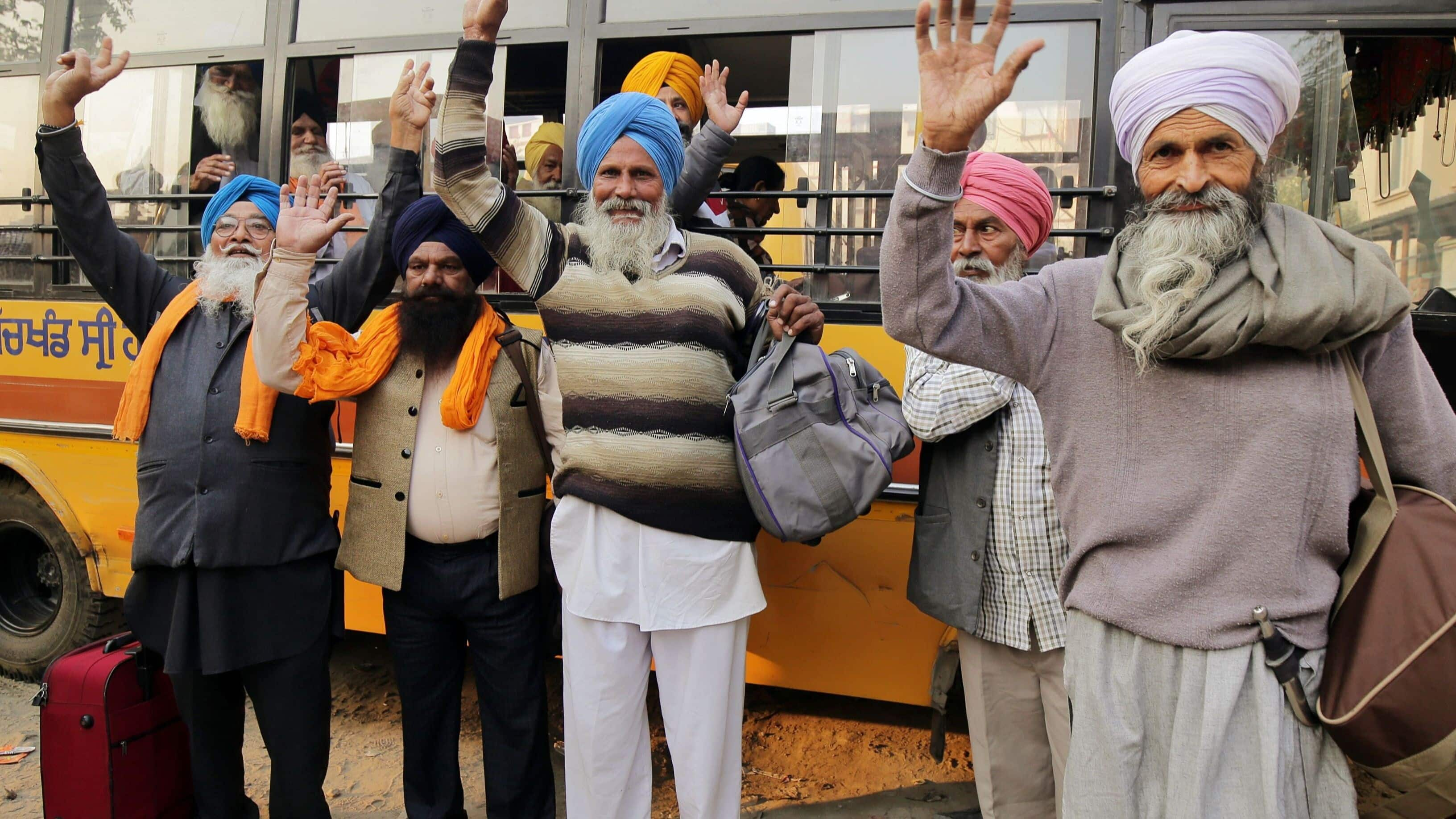Pak On Guru Nanak Jayanti Incident Sparks Diplomatic Discomfort
Pak On Guru Nanak Jayanti, a significant religious occasion for Sikhs, took an unexpected turn when 14 Indian Hindu pilgrims were denied entry into Pakistan. These individuals, who had initially received permission to travel to Nankana Sahib the birthplace of Guru Nanak Dev Ji were reportedly told by Pakistani officials that they could not participate as they were not Sikhs. The group was part of approximately 2,100 devotees cleared by India’s Home Ministry to visit Pakistan for the 556th birth anniversary celebrations of Guru Nanak.
According to official reports, nearly 1,900 pilgrims successfully crossed the Wagah border on Tuesday, marking the first major people-to-people contact since Operation Sindoor in May. However, the 14 Indian citizens Pakistani-born Sindhis who later obtained Indian citizenship were forced to return after being told, “You are Hindu, you can’t go with Sikh devotees.”
Pak On Guru Nanak Jayanti Denial Leaves Devotees Humiliated
The affected pilgrims, hailing from Delhi and Lucknow, were deeply disheartened by the incident. Sources say they walked back in silence, feeling humiliated by the discriminatory treatment. Despite possessing all necessary travel approvals, they were reportedly rejected on religious grounds.

In addition, around 300 others who had applied for visas independently were stopped on the Indian side of the border, as they did not have the required Home Ministry clearance. The incident has drawn attention to the strict travel protocols and the growing tension between India and Pakistan after Operation Sindoor a four-day military response to a terrorist attack in Pahalgam earlier this year.
Religious Delegations Proceed as Main Ceremony Begins
While the Hindu pilgrims faced setbacks, the Sikh devotees continued their journey to participate in the sacred celebrations. Akal Takht leader Giani Kuldeep Singh Gargaj, along with delegations from the Shiromani Gurdwara Parbandhak Committee and the Delhi Gurdwara Management Committee, crossed the border and reached Nankana Sahib. The main ceremony is scheduled to take place at Gurdwara Janamasthan, nearly 80 km from Lahore.

During their ten-day pilgrimage, the Indian Sikh devotees will also visit Gurdwara Panja Sahib Hasan Abdal, Gurdwara Sacha Sauda Farooqabad, and the historic Gurdwara Darbar Sahib Kartarpur. These sites hold immense spiritual significance, symbolizing the path and teachings of Guru Nanak Dev Ji. Also Read: Q2 Results 2025: Adani Enterprises Profit Soars 83% While SBI, Suzlon, and Other Giants Post Mixed Earnings
Pak On Guru Nanak Jayanti Incident Adds to Political Tensions
This incident comes at a time when relations between New Delhi and Islamabad remain strained. Operation Sindoor was India’s direct retaliation to the April 22 terrorist attack in Pahalgam, which left 26 civilians dead. The attack was traced back to The Resistance Front, a faction linked to the Pakistan-backed terror group Lashkar-e-Taiba.

The denial of entry to Indian Hindu pilgrims has now added another layer of discomfort between the two nations. While official statements from both sides remain cautious, the event has raised questions about Pakistan’s handling of religious tourism and cross-border faith visits.
View this post on Instagram
Conclusion
The Pak On Guru Nanak Jayanti episode reflects the fragile state of India-Pakistan relations, where even spiritual occasions are clouded by political tension. As thousands of Sikh devotees continue their pilgrimage, the return of 14 Hindu pilgrims serves as a reminder of the complex intersection of faith, identity, and diplomacy that continues to shape the subcontinent.

